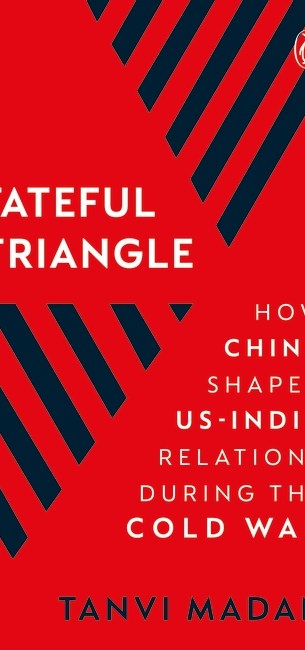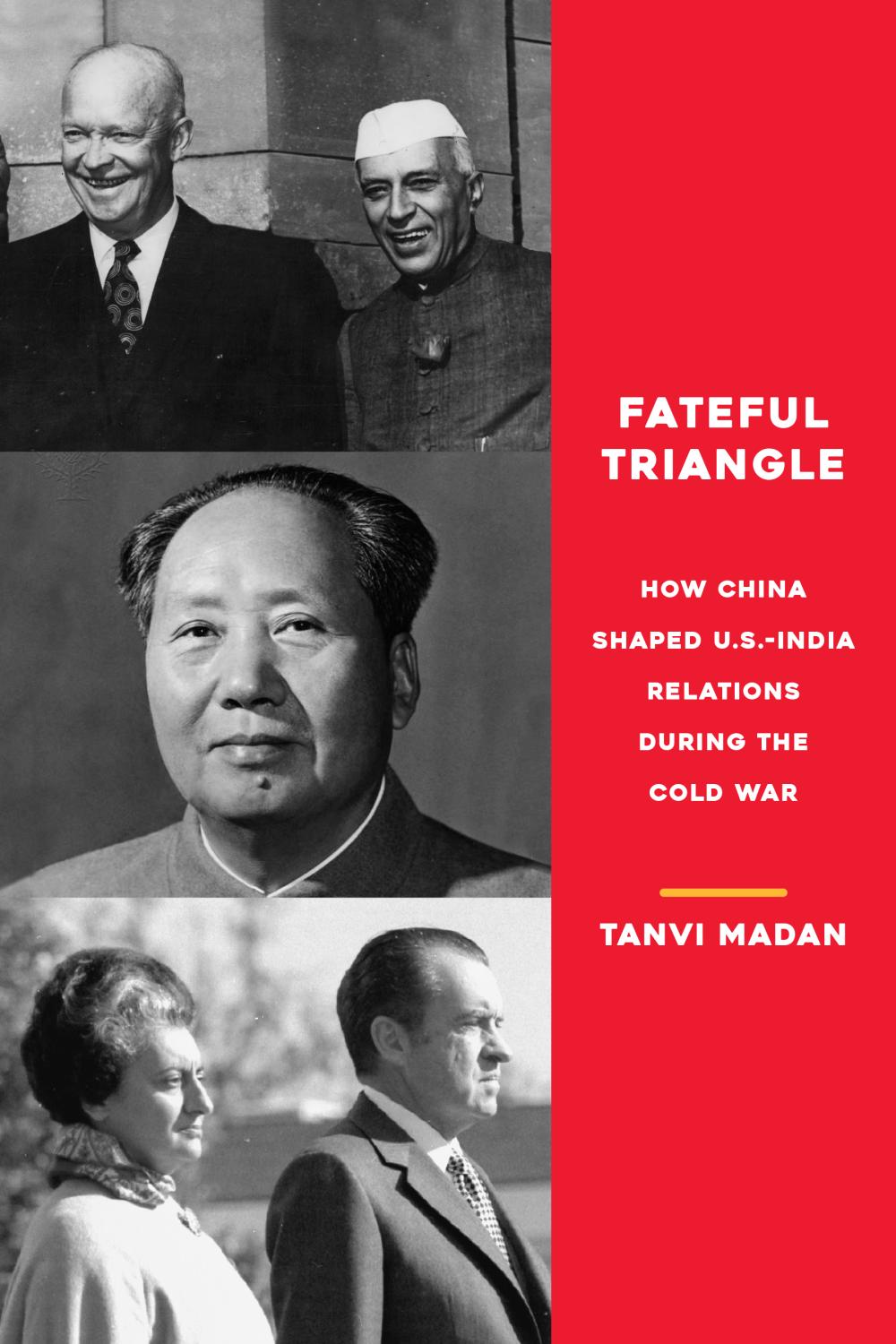FPI Best Foreign Policy Books 2020
Taking a long view of the three-party relationship, and its future prospects
In this Asian century, scholars, officials and journalists are increasingly focused on the fate of the rivalry between China and India. They see the U.S. relationships with the two Asian giants as now intertwined, after having followed separate paths during the Cold War.
In Fateful Triangle, Tanvi Madan argues that China’s influence on the U.S.-India relationship is neither a recent nor a momentary phenomenon. Drawing on documents from India and the United States, she shows that American and Indian perceptions of and policy toward China significantly shaped U.S.-India relations in three crucial decades, from 1949 to 1979. Fateful Triangle updates our understanding of the diplomatic history of U.S.-India relations, highlighting China’s central role in it, reassesses the origins and practice of Indian foreign policy and nonalignment, and provides historical context for the interactions between the three countries.

Madan’s assessment of this formative period in the triangular relationship is of more than historic interest. A key question today is whether the United States and India can, or should develop ever-closer ties as a way of countering China’s desire to be the dominant power in the broader Asian region. Fateful Triangle argues that history shows such a partnership is neither inevitable nor impossible. A desire to offset China brought the two countries closer together in the past, and could do so again. A look to history, however, also shows that shared perceptions of an external threat from China are necessary, but insufficient, to bring India and the United States into a close and sustained alignment: that requires agreement on the nature and urgency of the threat, as well as how to approach the threat strategically, economically, and ideologically.
With its long view, Fateful Triangle offers insights for both present and future policymakers as they tackle a fateful, and evolving, triangle that has regional and global implications.
Praise for Fateful Triangle
“A useful guide to the likely limits of future U.S.-Indian collaboration in dealing with China.”
—Andrew J. Nathan, Foreign Affairs
“As tensions between China and India heat up, Madan’s book provides a useful reminder that China has been a key driver that has either separated or conjoined India and the United States.”
—Daniel Drezner, The Washington Post
“Fateful Triangle can be an intense déjà vu trip. It’s a must-read, given the current situation. Deeply researched via archives and unpublished primary sources, the book delves into diplomatic history literally memo by memo, year by year. China was and remains the big elephant in the room shaping calculations and compulsions for India and the US.”
—Seema Sirohi, India Today
“This is a thoughtful and thought-provoking book that does a very fine job of presenting the fruits of considerable scholarship in direct, readable and uncluttered prose. It neatly demonstrates why we need historical studies to fully comprehend contemporary currents.”
—Ian Hall, International Affairs
“In this exceptionally well-researched work, Tanvi Madan reveals the Cold War years as anything but a period of estrangement between Washington and New Delhi. In actuality, Indian and American responses to China shaped a constantly evolving U.S.-India understanding, including a robust assistance relationship premised in part on the importance of India’s democracy. This insightful, carefully documented diplomatic history provides important lessons for American policymakers today, as a rising India charts its own course against a backdrop of concern about the liberal democratic order. A must-read for anyone interested in Asia, diplomatic history, international relations, the Cold War, and independent India during the twentieth century.”
—Alyssa Ayres, senior fellow for India, Pakistan, and South Asia, Council on Foreign Relations
“Tanvi Madan has given us a fresh and significant look at India-U.S. relations during a critical period. This is an outstanding, rigorous work based on fresh archival material, full of insights for the historian and lessons for the practitioner. One puts it down reluctantly, hoping she will next bring the story up to the present.”
—Shivshankar Menon, former foreign secretary of India
“Tanvi Madan’s Fateful Triangle is a marvelous antidote to historical amnesia. Meticulously demonstrating that China has dogged U.S.-Indian ties since India’s independence—eliciting the same hopes and ambiguities that mark the relationship today—this exceptional book will reeducate both scholars and policymakers alike.”
—Ashley J. Tellis, Tata Chair for Strategic Affairs and senior fellow, Carnegie Endowment for International Peace
“A groundbreaking study. Fateful Triangle not only enriches our understanding of the history of U.S.-India relations, but also offers powerful insights on the possibilities—and limits—of U.S.-India cooperation in the face of a rising China.”
—James B. Steinberg, University Professor, Social Science, International Affairs, and Law, The Maxwell School of Citizenship and Public Affairs, Syracuse University
Media Coverage
Your international relations book recommendations for the 2020 summer solstice
Fateful triangle: how China shaped US–India relations during the Cold War
Fateful Triangle: How China Shaped U.S.-India Relations During the Cold War
Eisenhower and Trump in India: A tale of two visits, 60 years apart
Fateful Triangle: How China Shaped U.S.-India Relations During the Cold War


